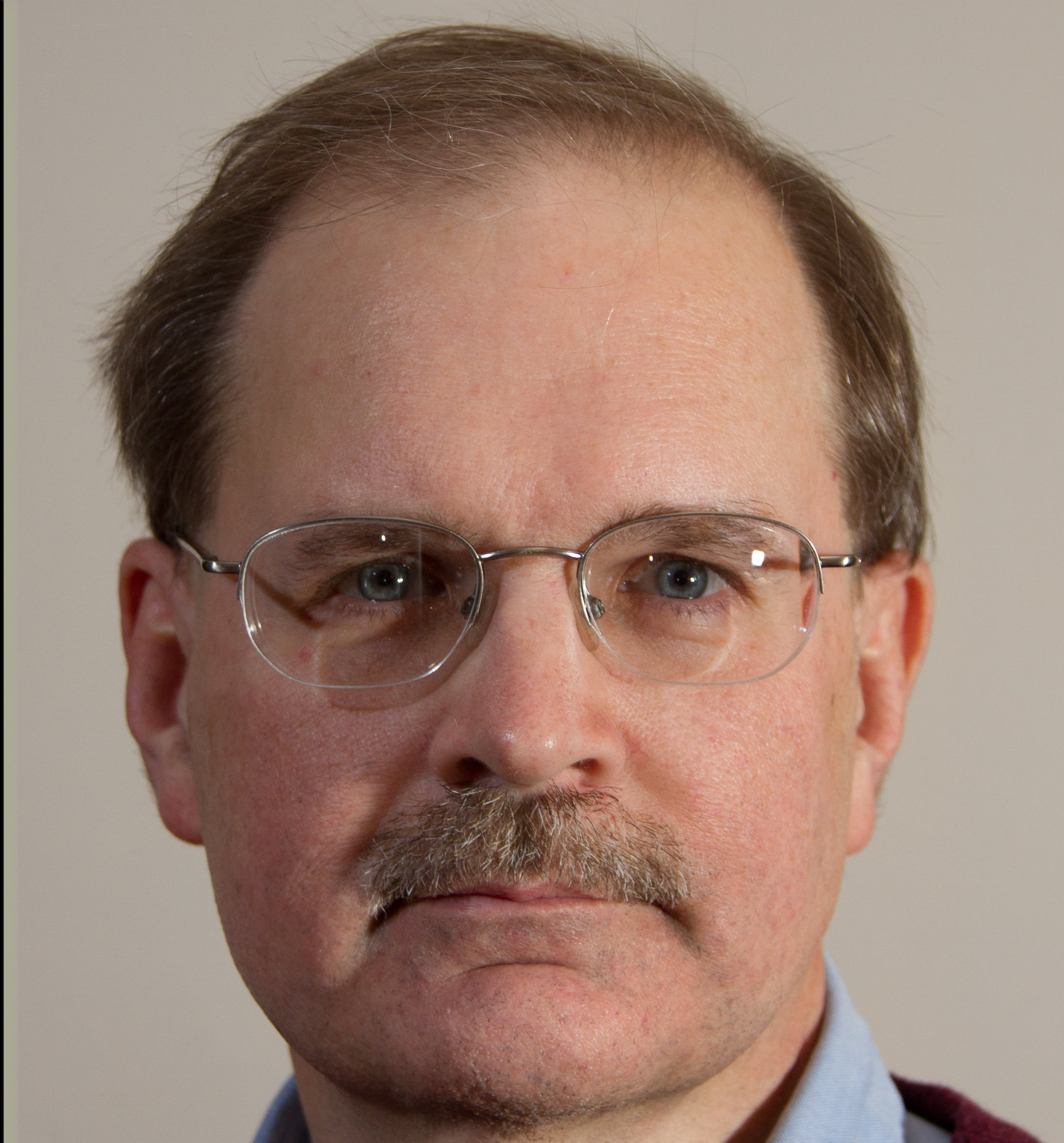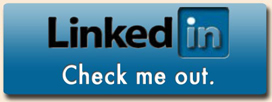 |
January 2015
Volume 34 Number 1 |
|
|
| IWOC: The Premier Resource for Professional Writers
|
|
• Editor's Intro
• Happy New Year
• Podcasts
• January Preview
• November Recap
• President's Column
• Did You Know?
• Tips for Using LinkedIn


| |
Well,
here it is 2015, and it looks a lot like 2014, but as always, hope
springs eternal with the beginning of a new year. Forget about resolving
to lose weight — does anybody ever resolve to gain weight? —
be nicer to boring people, or other useless determinations that are no
fun. Instead why not resolve to do something new that will get your
motor running and improve your bottom line? Learn a new skill;
find a new client; if you haven't already, start writing your own blog,
etc. It will perk you up and give you a fresh perspective. And IWOC aims
to help so take advantage of the monthly meetings and other resources
IWOC offers.
Stet is also changing. We have a new
e-newsletter format, and I'm aiming for a monthly theme. This month's
theme is Learn Something New. With that thought in mind, and in the spirit of the season, I offer you the January monthly quote:
"Cheers to a new year and another chance for us to get it right." — Oprah Winfrey
Because of the new Stet html format, we have unlimited space
for new features. I have some ideas, but I'd welcome your suggestions.
Think creatively, and let me know what you come up with.

— The Editor |
JANUARY MEETING PREVIEW
YOU'VE GOT QUESTIONS. WE'VE GOT ANSWERS

It’s
a new year, and your resolution is to get organized – finally. There’s
no better way to start than with all those legal issues you’ve been
wondering about for way too long. IWOC to the rescue! Our January
speaker will be creative property attorney David M. Adler.
Adler will address issues such as contracts versus letters of
agreement. Is there a difference? How binding is, say, a letter of
intent, whether from you or from a client? Learn the vital ingredients
of your and your clients’ documents and what makes them enforceable.
Must a document be signed to become binding, or can it be e-mailed? Can
you rely upon an oral offer?
Just what exactly constitutes a work made for hire, and how does its
ownership transfer from you, the writer, to your client? Are there
instances in which you can use that writing again for another client?
Confidentiality, nondisclosure, and embargo agreements — what are
they, and how can they affect your work? Are you obligated to sign them?
We’ve all heard this one: “If it’s on the Internet, it’s okay to use
it.” Is it? Is there a way to determine the original owner of Internet
content that has been obviously picked up from — somewhere ... who knows
where — and used and reused on various online sites? It’s possible to
get into trouble even with websites that offer free access to their
content if they did not themselves create that content.
What is fair use? A paragraph? A song title? How about a song’s first
line? Maybe just one verse? Learn your limits. And be aware that there
are predatory companies that search online content constantly in order
to claim infringement for their clients.
We all try to avoid conflict and disputes with our clients. Is there a
foolproof technique for protection? When we send an invoice, how might
we ensure payment even if our work is never used? Is writing on spec
ever a good idea, and what’s the best method of guaranteeing a piece is
never used illegally?
Writing a book? Whether you sign with a traditional, royalty-paying
publisher or decide to go the self-publish route, you should understand
copyright and know what an international standard book number (ISBN)
means both for you and for the publisher.
Adler will touch on these and other issues as he discusses rights and
responsibilities that apply to independent writers. Bring along your own
questions.
Adler is the principal attorney in the Adler Law Group
and the driving force behind his firm's technology practice group. He
has an extensive background in corporate law, including contract
drafting and interpretation, negotiation, and enforcement of
intellectual property and media law.
Adler received his law degree from the DePaul University College of
Law where he wrote for the DePaul Arts & Entertainment Law Journal.
He holds Bachelor’s degrees both in English and history from Indiana
University in Bloomington, Indiana.
Besides the practice of law, Adler teaches an undergraduate course on
e-business in the Arts, Entertainment & Media Management Department
of Columbia College Chicago. He also chaired the Chicago Bar
Association's start-up and entrepreneurial ventures subcommittee and
contributes to Workz.com as a guest expert columnist for the e-commerce and small business sections.
Don’t miss this opportunity to shape up your new year by settling
some legal points you’ve wondered about. Make a list of your questions
and come to the Independent Writers of Chicago meeting on Tuesday,
January 13, at the Gratz Center, just off Michigan Avenue, between
Chestnut and Delaware. Ask at the reception desk for the room location;
we’ve moved. We meet at 5:00 for snacks and networking; the program runs
from 6:00 till 7:15. Stick around for lots more conversation and a
buy-your-own dinner at nearby Bar Toma,
110 East Pearson . Park at 900 Michigan (Bloomingdale’s, enter from
Walton or Rush) after 5:00 and have your ticket validated (only six
bucks!) at the Gratz Center reception desk or arrange a steeply
discounted advance parking permit through Spot Hero. Several buses also run on Michigan Avenue.

— Jim Kepler |
NOVEMBER MEETING RECAP
USING FACEBOOK & GOOGLE TO TOUT YOUR SKILLS

Roger Rueff, IWOC’s webmaster and proprietor of Write Now, Inc., put together a great presentation on advertising with Facebook and Google
with the intent to give us enough information so we could decide for
ourselves if either is right for us. If we decide it is, he also showed
us how to use each of them and gave us some tips that he has picked up
along the way.
Why use Facebook and/or Google to advertise our writing, books, or
products? There are many other ways to advertise but most are pretty
expensive. Facebook can reach a large audience at a reasonably low cost.
You can self-manage your advertising effort so you do not have to hire
an agency. An agency can do a lot for you, but (again)it is expensive.
The three major differences between the two are:
Location: Facebook is single and Google is multiple.
Roger used this analogy to explain: look at Facebook as if it were a
barbershop with a million people going into the shop. When they are in
the shop, they talk to the barber and say, “I want to advertise”. The
barber tells them to set up a desk in the shop, and he will see if he
can get the word out. If you pay him a little, he will walk around and
advertise but only in his barbershop. Google is everywhere outside the
barbershop.
Audience: Facebook is interactive, while Google is
based on searches. That is, people go to Facebook to see pictures of
kittens and to interact with those pictures. People go to Google when
they are looking for something specific that justmight be something you
have to offer.
Payment: Facebook is pay-per-impression and Google
is pay-per-click, i.e., Facebook charges a little for everything while
Google only charges for actual clicks by users.
Looking just at the pros of Facebook: it is simple
for you to reach a large, targeted audience. You can define that target
when you set up your ad. The information is found both in the user’s
profile and what the user “looks at.” It is easy to self-manage from
your own Facebook account. It is flexible with regard to ad format; you
can use text, insert a link or video, or use one or a combination of any
of those formats. Facebook will also look at a link you post, go to it,
and post graphics from your site on the post.
And the Cons: The information you get about Facebook
users is primarily their interests and those are not always as
descriptive as they could be. The system also has some money-wasting
booby-traps such as “click farms”. In a click farm, people get paid to
“like” your page. But Facebook has a policy against click farms, and you
need more interaction than just page likes to successfully advertise on
Facebook.
On Facebook, once you have created a page, you then create posts and,
well, post them. One potential question is: “how does Facebook decide
where to put your posts?” Your posts go to your Facebook friends and
those that like your page. If there is a lot of interaction with that
post within the first half hour of its being posted, the post will be
shown by Facebook in more places. You can schedule your posts, which is
helpful as posts are viewed most often before and after work and at
lunchtime and on weekends. So you can write your post at 10:00 a.m. on
Monday and set it to post at noon. You can also “boost” your post by
paying to boost it. You pick the amount of money you want to spend, and
Facebook with push it out until it reaches your spending limit. The one
disadvantage to this (besides cost) is that it will appear as a boosted
post to those to whom Facebook sends it, but if others send it off on
their own, it will not have the boost tagline. You can also review your
statistics on Facebook to see how your post fared.
Google and Google Adwords: Google Adwords (GA)
appear in the search and display networks. This can be important because
people who are looking for things are usually “Google-ing” them. You
can have your ad be the one they find when they Google.
The pros of GA are that it is a direct way to reach a large targeted
audience based on a keyword search instead of interests, and it uses a
very sophisticated technology to maximize experience. It also includes a
helpful tutorial.
On the other hand, the cons are: the market is large and may not be relevant. A marketing campaign requires more management and effort than Facebook.
But you can build a campaign by following these steps:
1. Create a GA word account.
2. Create the campaign.
3. Create the ad.
4. Add funds to your GA account.
Then you need to monitor the campaign:
1. Access GA dashboards.
2. Review performance and adjust keywords bids as necessary.
This is where you have to realize that GA looks for quality words and
uses algorithms to sort the way ads get ranked at the top. It is not
just how much is paid.
Roger showed how to create a GA account, dashboard, options, and
campaigns. GA also has a set number of characters. The campaign
management function and statistics on GA give a lot of information to
the user. You can also monitor your website traffic using Google
Analytics, but that might be a subject for a future presentation.
Roger explained that the “bounce rate” refers to the percentage of
people who leave immediately after hitting your site. He gave us one
other interesting demonstration: on a map, you can see in real time who
is visiting your site and what type of device they are using. Freaky.
After the wrap-up, we talked about the advantages of membership. The
podcast and PowerPoint from tonight’s meeting are available on the IWOC
website in the members' area. Or you can click HERE to see/hear it now. Another great member perk!

— Cynthia Tomusiak
| |
|
President's Column
JUMP START THE NEW YEAR WITH IWOC'S HELP

It
is traditional at the beginning of a new year to consider what you want
to accomplish in the course of that year. Even though many New Year’s
resolutions quickly fall by the wayside, if you want to improve your
skills and business prospects this year IWOC can help you realize both
goals. As I write this, I have just registered IWOC for the new
Lake FX Summit + Expo. This will be a four-day mega event in April
replacing several specialized gatherings including the Chicago Creative
Expo that we participated in. The city is advertising Lake FX as an
event for people who make, create and innovate, and for those in the
music, film, fashion, art and culinary industries. That’s a lot to
include under a single banner, and you will notice writing isn’t
mentioned specifically. The board was of two minds about participating.
The city may be focusing too much on trendy visual arts while ignoring
writing services, to our detriment. Yet writing falls within the realms
of art and creation. There’s also this: Everything in that broad list is
either based on the written word or related to it. Films need scripts,
and cookbooks need editors. Someone writes the catalog for a fashion
show, and all those makers, creators, and innovators need writers for
press releases, proposals, and websites. In other words, if we put a
different frame around our thinking, this catch-all event may be a
one-stop boon for members who want to expand into other types of writing
or find new markets for established services. We decided to try
it out by buying a table and seeing what response we have. Chicago Women
in Publishing was in the same dilemma, so we decided to share a table.
As was the case with the Creative Expo, Lake FX will host exhibitors
like us on Friday and Saturday, the 17th and 18th, from 10-4 at the
Chicago Cultural Center. Workshops and panels will be held on the same
two days, although the venues will be expanded to include other
locations in the Loop. So mark April 16 to 19 on your calendars as
a time when you can explore new opportunities and make new connections.
We’ll be looking for people to help staff our table, too. You won’t
lose a day. You’ll cultivate clients and markets. In the nearer
future there are skills you can acquire simply by coming to our monthly
meetings. Our guest speaker in January is attorney David Adler, who will
explain legal issues and tell us how to stay out of trouble. And if you
don’t think that’s necessary, consider the story I heard from a friend
who edits a magazine. A few months ago he was having difficulty finding
pictures to accompany a story. He called a guy who was part of the
story, and the guy sent him a bunch of stuff picked off the Internet.
When my friend questioned the copyright for the images the guy said,
“Well, everything on the Internet can be used for free.” That’s
how people wind up in court, dazed and spending money. Invest an hour
listening to Adler, and you may avoid the pain of court. And how often
do you have the opportunity to question a lawyer and not receive a bill?
 — David Steinkraus
DID YOU KNOW?
FOLLOW THESE CUSTOMS FOR A SUCCESSFUL NEW YEAR

Besides getting plastered and kissing everybody in sight at midnight, revelers historically have observed numerous lesser-known New Year's customs and superstitions. Many are aimed at warding off evil spirits or promoting luck in the year to come. As freelancers, we could all use a peck of good luck, and we don't need evil spirits lurking about hiding our keys and our glasses, causing dishes on which we had a perfectly good grip to drop, and whispering to the children that broccoli is icky.
What to Do on New Year’s Eve
Plant the midnight kiss: Don’t fail to smooch your significant other. Skipping this vital act will get you the cold shoulder for the rest of a very long year.
Fill your fridge and cupboards: Having a full larder and plenty of money in every wallet on the fatal day will guarantee a very prosperous year. Who knew it was that easy?
Make a lot of racket: You don’t want those nasty evil spirits hanging around all year, do you? (If you don't like your neighbors, you can probably get rid of them too.)
Let the old year out: Open all your doors and windows so the blasted fellow can escape unimpeded. You’ll be sorry if you don’t, so forget the hit to your heating bill.
What to Do on New Year’s Day
Don’t take anything out of the house: Even dumping the garbage is a no-no. (Sources don’t say whether you can let the dog out to pee, so apparently you’ll have to judge for yourself whether you’d rather have bad luck or replace the rug.)
Chow down on black-eyed peas: As all good Southerners know, this is a must on New Year’s Day if you want to have a successful year.
But under no circumstances, eat chicken or turkey on that day: Doing so will cause you to have to “scratch in the dirt” all year to make ends meet.
Avoid doing laundry on January 1: Washing your undies and jeans then is likely to cause a family member to “wash away,” i.e., die in the coming months. Well, that’s grim.
Wear something new: Doing so will ensure that you’ll get new duds all year long. Clothes horses take note. You might want to add another closet.
This is a lot of stuff to remember, especially after you've had that fifth glass of champagne, so maybe the best method of starting the year right is to stock up on your favorite hangover cure.(If you've got one that works, you won't need to write for a living any more.) Happy New Year! 
— Joen Kinnan
TIPS FOR USING LINKEDIN
BEEF-UPS TO GET JOBS THROUGH YOUR LINKEDIN PROFILE
|
 Like many other IWOCers, you probably have a listing on LinkedIn. (If you don’t, you should. Employers do search LinkedIn for potential job candidates.) But have you maximized the potential of your profile to capture the attention of those who hire? Below are some tips on what — and what not — to include.
LinkedIn ranks your profile strength from 0 to 100 percent. Score high, and you’ll likely show up in search results. Listing skills is important: employers often search on skill keywords. Don’t get too creative, though. Choose terms that are used commonly to define skills. You want them to find you, not show off your cleverness. Using terms from the IWOC “categories” lists may be helpful. LinkedIn recommends including at least five skills.
Unless you’re looking for fulltime work, indicate that you’re freelance and describe the type of work that you do. List your last fulltime position and possibly one or two other of your best positions (without dates unless they were very recent). The word “formerly” fits in nicely here.(Skip this if you were a steamfitter before you became a writer.) Alternatively, list a couple of your best freelance jobs, based on either the prestige of the client or the scope of the work.
Include your education, assuming it will add to your desirability. List any degrees, of course, along with the institutions, but you can skip the dates, particularly if they were back in the Dark Ages.
LinkedIn suggests including a photo in your profile, but if your likeness evokes a “What? She’s still working?” response, you might want to rethink that.
Another LinkedIn recommendation: list at least 50 contacts. Seems like overkill to me, but maybe it’s important.
If you have publications, list them, with links to any that are online. Here your website comes in handy, so be sure to give the address.
Don’t neglect professional organizations to which you belong, including IWOC. If you’ve held offices — it’s not too late to become an IWOC committee chair — put those in too. You’ll also want to include a summary of your work, work samples, and volunteer experience.
Next month, we’ll include more details about how to make LinkedIn a cracker-jack site to solicit business, but in the interest of full disclosure, I have to confess that I am like the shoemaker whose kids have no shoes. I myself have not done these things, though I’m fired up to get at it. So don’t look at my LinkedIn profile to see how it’s done. It isn’t yet. 
— Joen Kinnan
|
| |
| |
| |
Copyright © 2015 Independent Writers of Chicago. All rights reserved.
To submit an article, suggest a topic, make a correction, or just comment, contact Joen Kinnan, the editor, at: stet@iwoc.org.
Stet, the IWOC newsletter, is a member benefit.
Unsubscribe |
|
|
| |
| |







